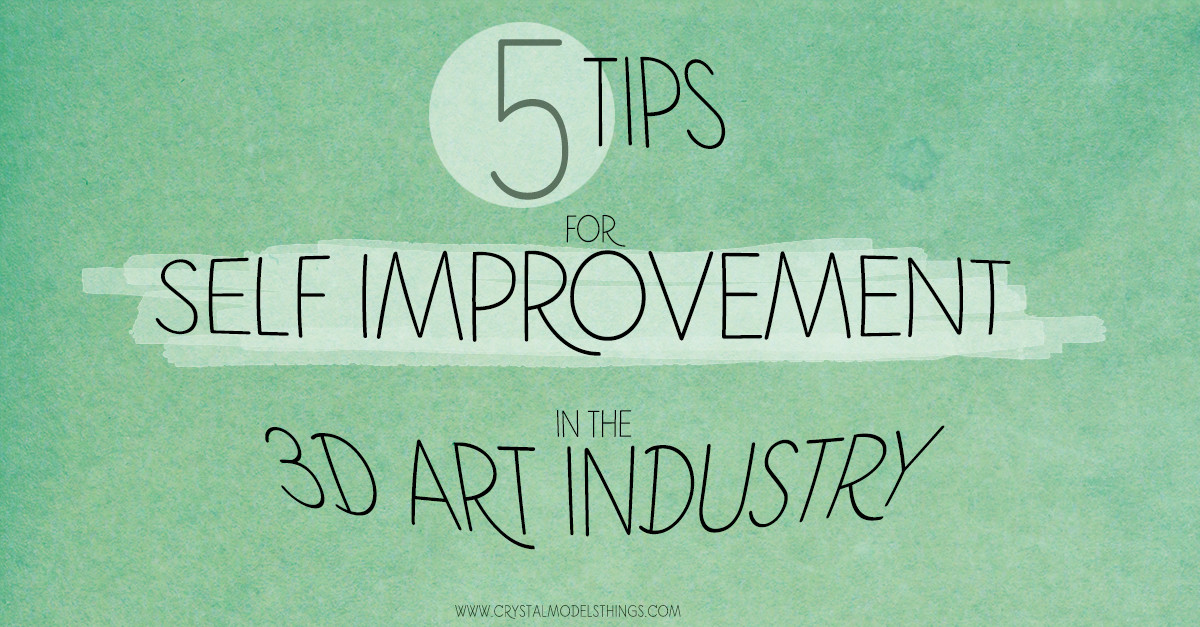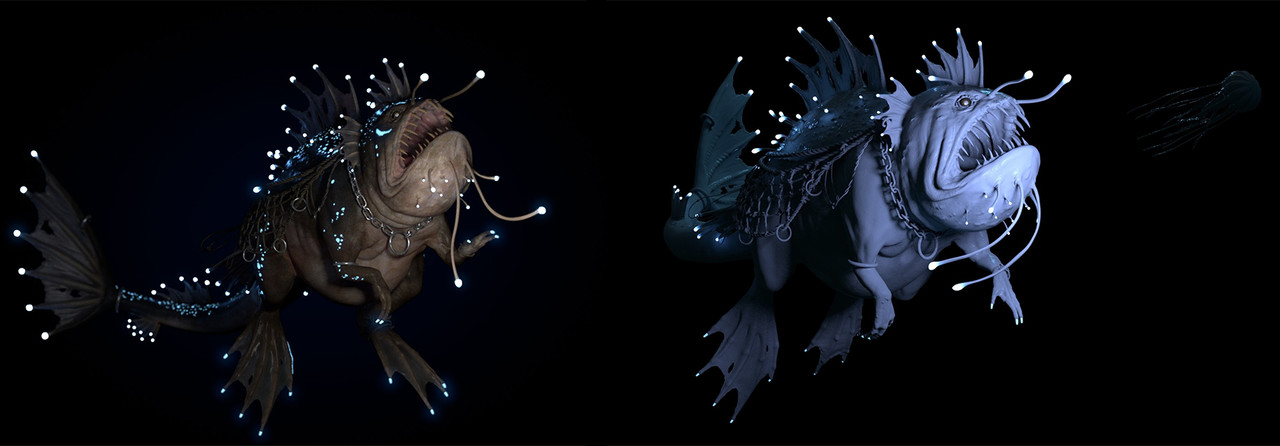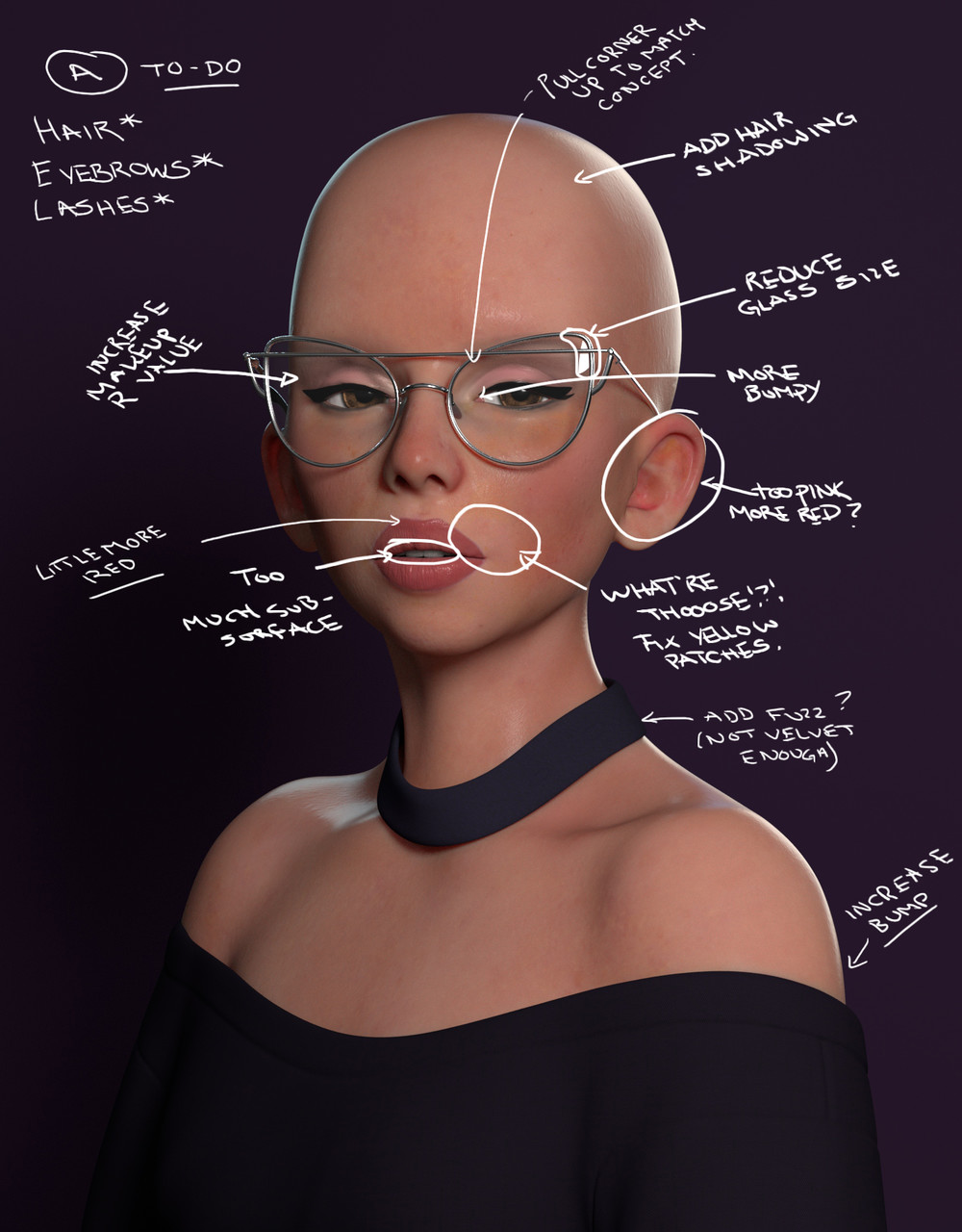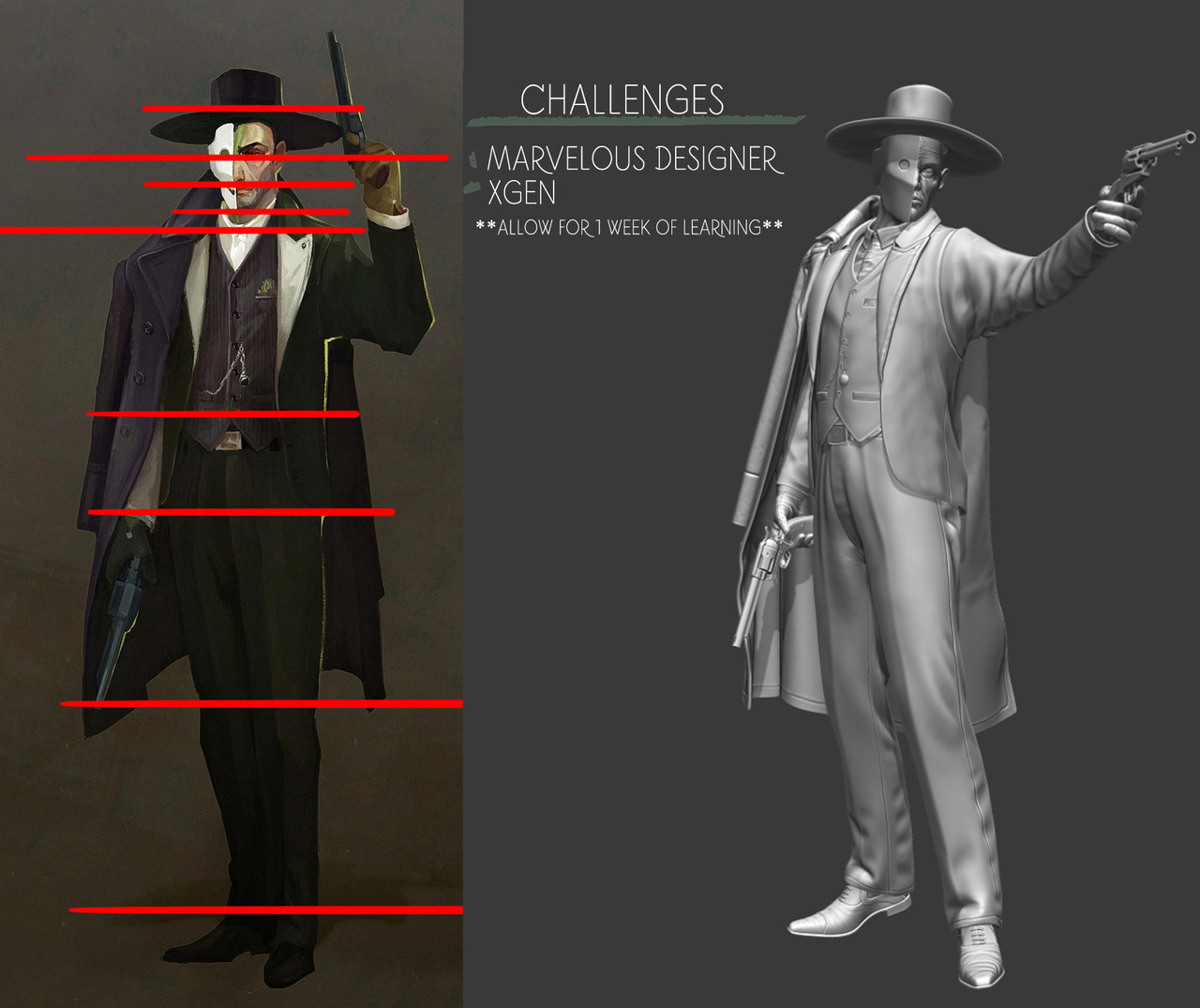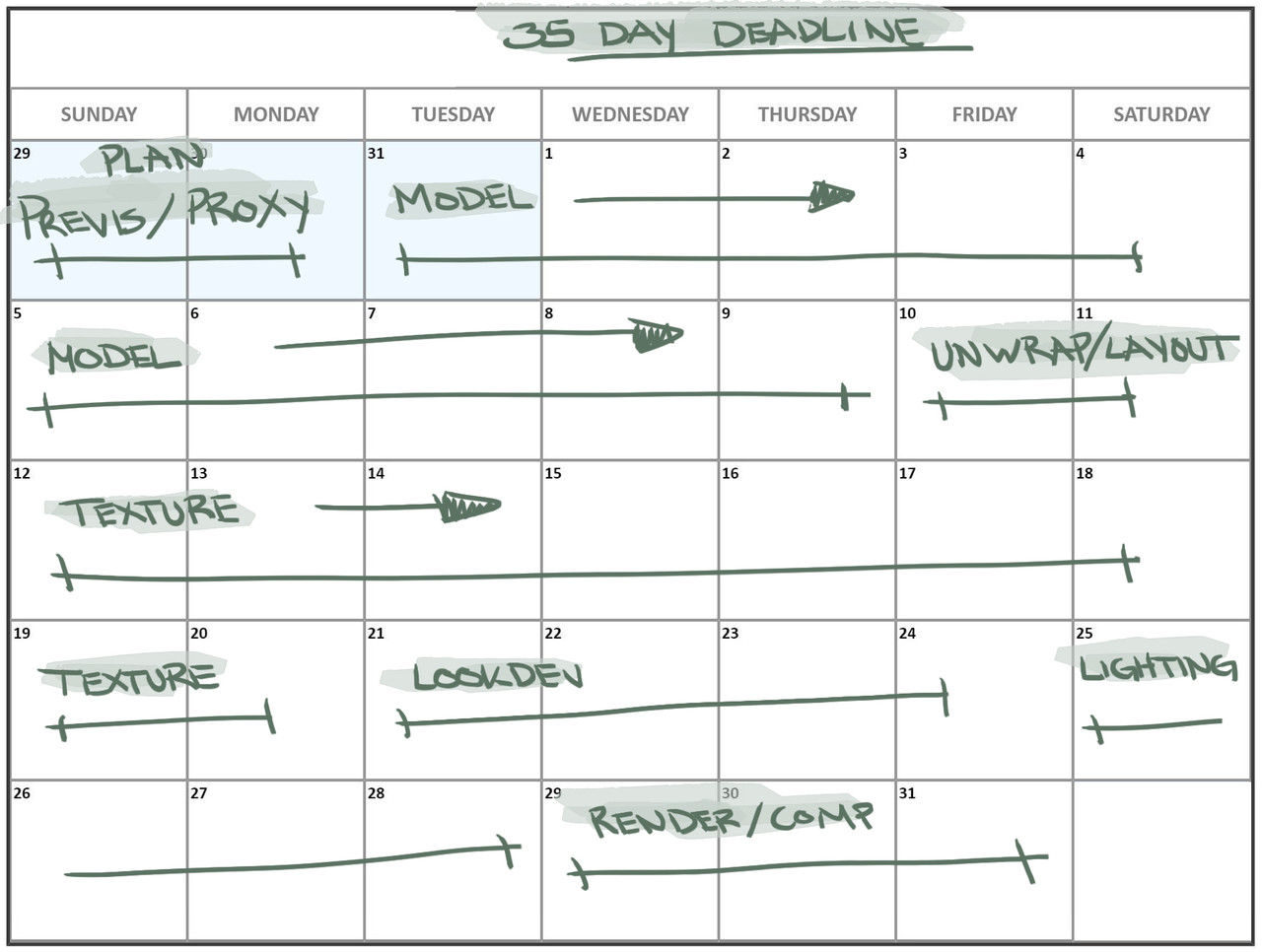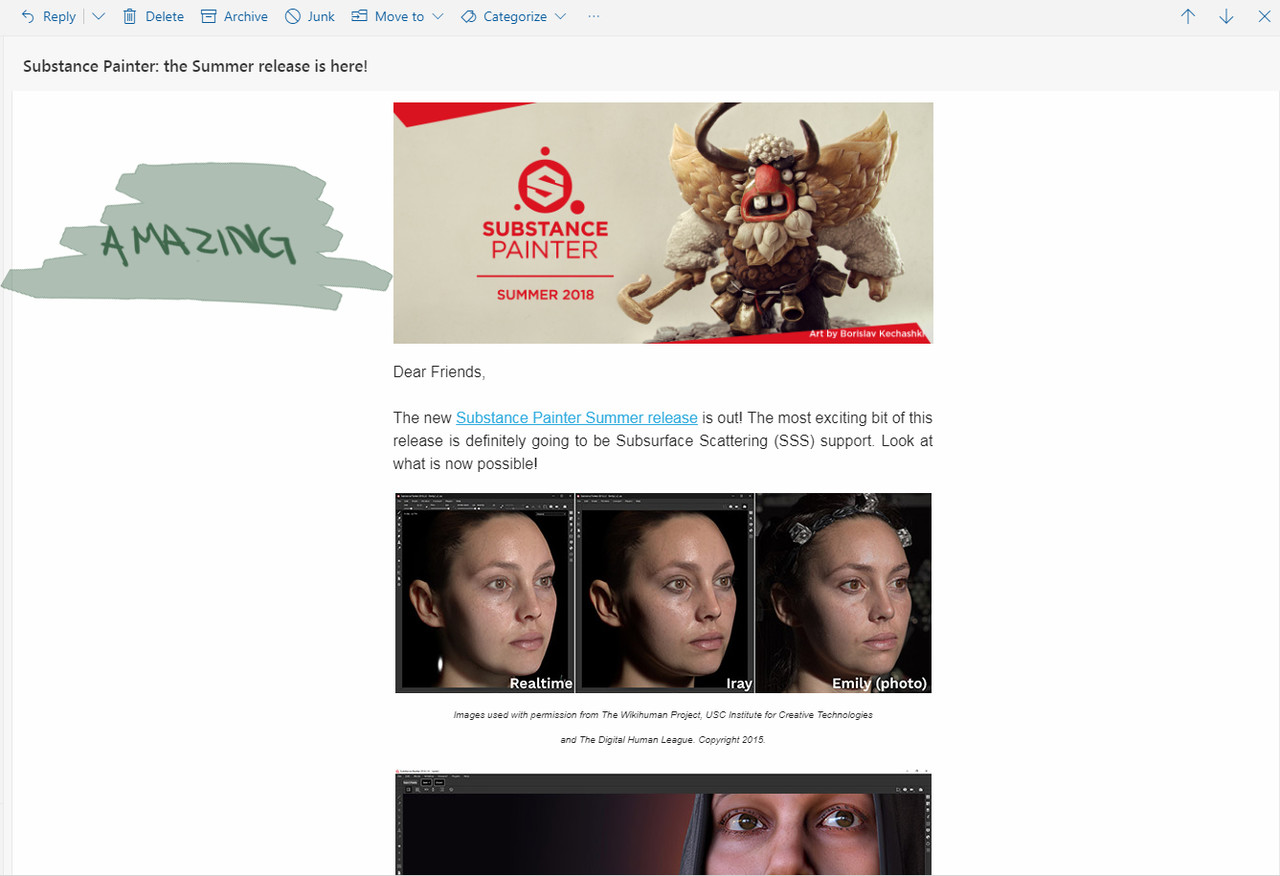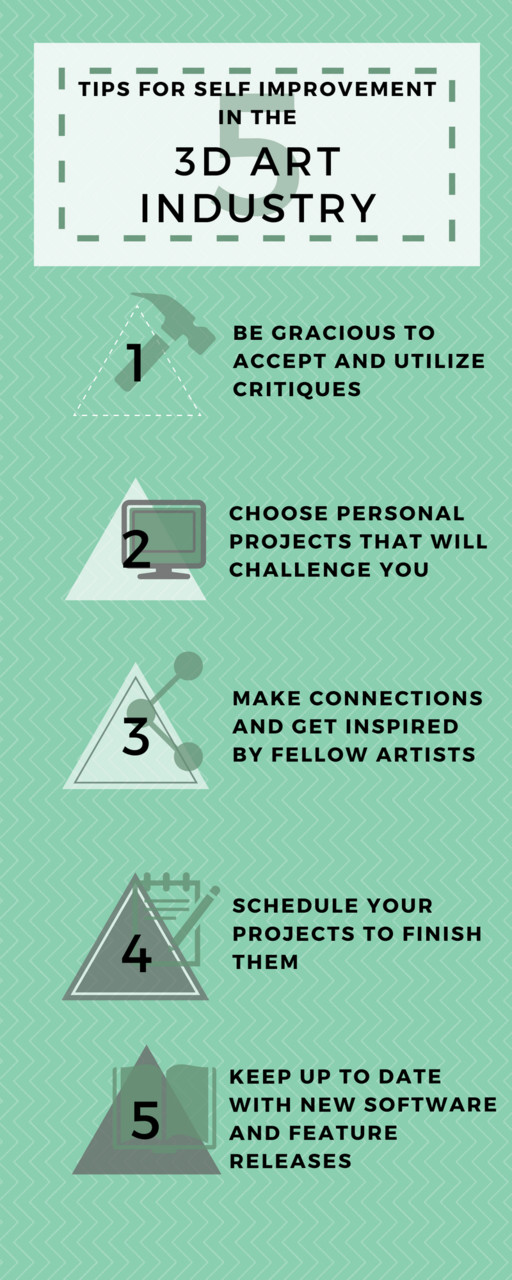Hi friends!
I wanted to write a blog on my five best tips for self improvement within the 3D art industry in hopes that this might help out some of you reading who might be feeling stuck. I’ve been working in the industry for just over 3 years now on tv and features films, and have been more than lucky to work on titles such as Marvels: Black Panther, Fantastic Beasts the Crimes of Grindelwald, Zoo, Travellers, Izombie and many others.
You can check me out on IMDB here: Crystal Bretz
From my experiences I wanted to share some of the things I’ve learned to help me stay on top of my game and continue to improve my skills while maintaining a full time job within the industry.

-----------------------------------------------------------------------------------------------------------------------------------------------------------------------------------------------------------------
1. Seek and utilize critiques at work or on personal work
This is valuable for self improvement because all too often I see people get to the end of a project and decide that it’s done without seeking critiques. When you’re staring at the same project for too long sometimes you can miss important things or not see anything wrong. It’s always good to get a fresh set of eyes and opinions on something you’re working on. I often look to fellow artists and colleagues at work for critiques, or even someone completely out of my industry (for personal work). More times than not, I find those opinions to be even more valuable because in VFX you’re always trying to fool the viewer and if your viewer is able to notice problems with your work or provide critiques, chances are very high that anyone else will see or say the same about it. Now there’s something to add about receiving constructive criticism. You need to take it with a grain of salt and remember that whomever gave you this feedback just wants to see you succeed and only wants to help you improve. So detach yourself from your project a little in order to reap the full benefits criticism can offer. If your goal is self improvement then don’t stop at your best. Let others push you and your work further.
Here's a little example of how grabbing some feedback from many people during the Artstation Challenge "beneath the waves" really helped to improve the mood and flow of my composition. It also showed me that my pose was the major issue that was keeping my creature from showing it's emotion.
OLD NEW
Another thing I like to do is give myself critiques. I will do this by bringing my latest work in progress into photoshop and write down anything that comes to mind that I might be able to improve on, or even anything I have planned to approach next. I really make the effort to see my work through the viewers eyes, so that I can give myself the most raw feedback. I do it this way because it helps to keeps things organized for myself but also gives me the chance to take a step backwards, so that I can take ten more steps forward with a plan of attack.
2. Push yourself out of your comfort zone and choose personal projects that will challenge you
I think this is the biggest tip I can give. Regardless of if you’re already in the industry, working on personal projects outside of your full time job will give you the chance to explore and challenge yourself. Often times you might be given repetitive tasks at work that don’t promote self improvement as quickly as you’d like.
When I’m choosing a project I like to pick something that contains 2-3 things that I either want to improve on, begin learning, or just challenge my skills. For example, I have chosen projects before to practice anatomy and form, investigate which hair softwares I prefer using (xgen, yeti, ornatrix) , or explore new features added to my current mental database of softwares. I’ve even chosen projects that test my ability to pose and present my models and develop a better eye for composition, cinematography and photography.
I like to write down exactly what I'm planning to get out of the project before I start so I am always keeping the goal in mind all the way through to the end. If you go into it without a plan to learn anything new, chances are you will end up using the same software and strategies that you normally use.
I think if your going to work on a personal project at home it shouldn’t be one that’s going to make you comfortable, it should be one to make you squirm at first but provide amazing satisfaction at the finish line and give you another tool for that toolbox.
Now that you've chosen a project that challenges you, you're probably going to run into a roadblock or ten... For some, this can make you super unmotivated if you can't solve the problem right away. I know for me it is. What I want to do when this happens is to stop working on the project for a few days and take a mental break, but this can leave you more time to get more unmotivated to finish the project. So instead, I try to figure out what I can do on the project and keep it moving forward (like setting up lighting, practicing poses, or simple RND). This is a great way to stay excited to complete the project without letting yourself get too stressed out by the problem. I also find when you distract yourself from the issues, instead of isolating it, the answers come to you much faster without a lot of extra stress.
3. Make connections and get inspired by other artists
Making connections and friendships in the VFX industry is very valuable for many reasons. Some could help you land your next job, but in this particular case they’re important because not only are they going to give you great critiques as stated above, they are going to inspire and motivate you by seeing their work and workflows. You would be surprised by the vast amount of knowledge your desk neighbour might spill out to you in a short conversation and how much you could learn. Whether it’s anything from hot keys to source material websites, or answers to current problems you’re running into at home on your personal work. Chances are someone next to you knows the answers and are MORE than happy to help. Also when you see their work being published in magazines, Artstation, or other social platforms it’s inspiring and motivational to say the least. It definitely drives me to want to create something JUST as great and gives me the energy to go home and work on myself and my skill set.
I would go on a rant about all the artists that inspire me, but I fear that list would just be far too long.
4. Schedule your own projects to finish them
I guess this could fall under the personal work section but I decided to create a separate section just for this because it’s so valuable. I think this is super important for your self improvement because every artists goals are to create a perfect art piece. Let’s be honest, It’s never going to be perfect, ever. Art is defined by the viewer and the viewer always changes. I think when you learn to move on from your projects and not keep them going forever you’re consistently taking a step forward with your self improvement. This is by no means saying you should only work on quick projects, “Rome wasn’t built in a day”, but I am saying that you should set a schedule for every project you do. This can be anywhere from 3 hours for a speed sculpt to 5 months for a character model. When you create a goal and schedule in mind for every project and reach that goal or end of schedule, wrap it up and call it done. You leave yourself more open to expanding your knowledge when you’re not worried about all the unfinished projects you need to get back to.
5. Keep up to date with new software and feature releases
Keeping up to date with new software is a great way to pave that self improvement path. Learning the next best thing could save you time on current workflows you use and thus making you a faster and more efficient artist. Absorbing knowledge from various programs will allow yourself to become a more valuable asset to your team and leads. Software and updates are being released so often so I understand it’s hard to stay completely up to date. Give it your best go to filter through it and chose what’s going to be valuable for yourself and your career path.
Attending Siggraph can be a great way to keep updated on the newest programs, features and workflows, I highly recommend going to this convention if you ever get the chance. You can also get away with purchasing the expos only pass if you’re tight on money and I guarantee you will still come out of there with more knowledge than when you went in. You can also sign up for the email subscription newsletters from the foundry, pixologic, allegorithmic, or any other company to be updated when new features get launched.
There you have it folks! Those would be my five best tips for consistent self improvement within the 3D art industry. I hope this helps!

